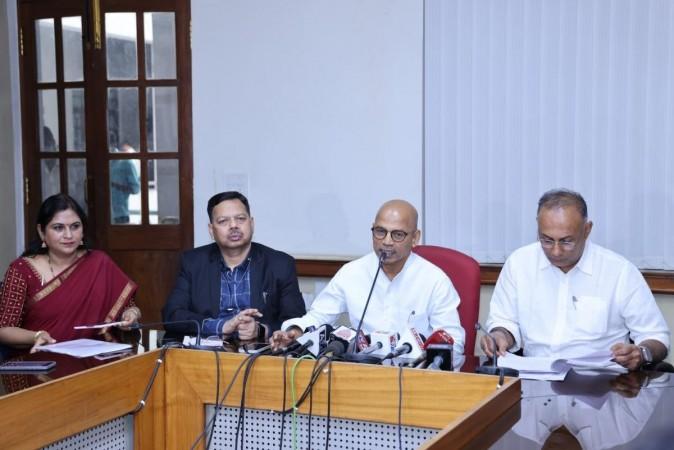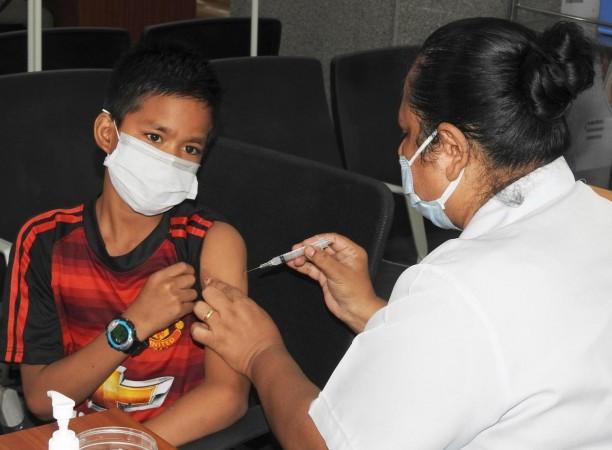
In recent weeks, Karnataka has been at the forefront of public health discussions due to reports of increased heart attack cases, particularly in the Hassan district. This situation has prompted state officials to address public concerns and clarify the facts surrounding these incidents. At a joint press conference held at Vikas Soudha, Sharan Prakash Patil, the Minister for Medical Education, Skill Development, Entrepreneurship, and Livelihood, alongside Health and Family Welfare Minister Dinesh Gundu Rao, sought to reassure the public about the safety of COVID-19 vaccines and the measures being taken to address the health concerns.
Minister Patil emphasized that there is no need for public panic regarding the heart attack cases, as the average number of such incidents is consistent with previous years. He stated, "There is no link between the COVID-19 vaccine and the heart attack cases in Hassan. People should not doubt the vaccine. The belief that these cases are occurring only in Hassan is incorrect." This statement was made to dispel rumors and misinformation that had been circulating, suggesting a connection between the vaccine and the rise in heart attacks.
The ministers highlighted that the government is actively taking measures to address the situation. Minister Patil noted that a study is being conducted on the deaths of 24 individuals in Hassan, revealing that only 10 of these were due to heart attacks, while the remaining deaths were attributed to other causes. This study is part of a broader effort to understand the underlying factors contributing to these health issues.
An expert analysis led by cardiologist Dr. K.S. Ravindranath at Jayadeva Hospital found that the number of deaths from heart attacks has not increased. "Heart attacks occurred before and continue to occur now," Dr. Ravindranath explained, emphasizing that the current situation is not an anomaly but rather a continuation of existing health trends.
Patil further elaborated on the lifestyle changes that have occurred post-COVID, which have led to a rise in diabetes and blood pressure cases. "Dietary habits have changed, and stress levels have increased. We are studying the reasons behind the rise in deaths among youth," he added. This acknowledgment of lifestyle factors is crucial in understanding the broader context of the health issues being faced.
In response to the situation, the government is planning to organize awareness programs through Jayadeva Hospital. Health Minister Dinesh Gundu Rao stated, "We will organize awareness programs through Jayadeva Hospital. We are also taking strict action on roadside food vendors and unhygienic food preparation methods." These initiatives aim to promote healthier lifestyles and reduce the risk of heart-related illnesses.

The ministers also advised the public to focus on leading a healthy lifestyle, getting adequate sleep, and exercising regularly. Minister Patil advised, "Only those showing symptoms of heart-related illness should go for a medical check-up. Don't rush to hospitals without a reason." This advice is intended to prevent unnecessary panic and hospital visits, which can strain healthcare resources.
The government is also taking steps to address the occupational factors contributing to heart health issues. Gundu Rao acknowledged significant concerns surrounding the occupational profile of the deceased, noting that "nearly 30 percent of them were auto and cab drivers. Many of them were from Hassan but had been living and working in Bengaluru. These deaths seem more linked to lifestyle and occupational stress."
The investigation identified multiple contributing factors specific to the driving profession, including prolonged hours of sitting, irregular eating habits, smoking, lack of physical activity, chronic stress, and poor sleep patterns.
In light of these findings, the government is considering implementing measures to address these occupational health risks. Suggestions include CPR training for school and college students, teachers, and gym trainers, as well as placing defibrillator machines in crowded places like gyms and malls. These measures aim to improve emergency response capabilities and reduce the risk of fatal heart attacks.








